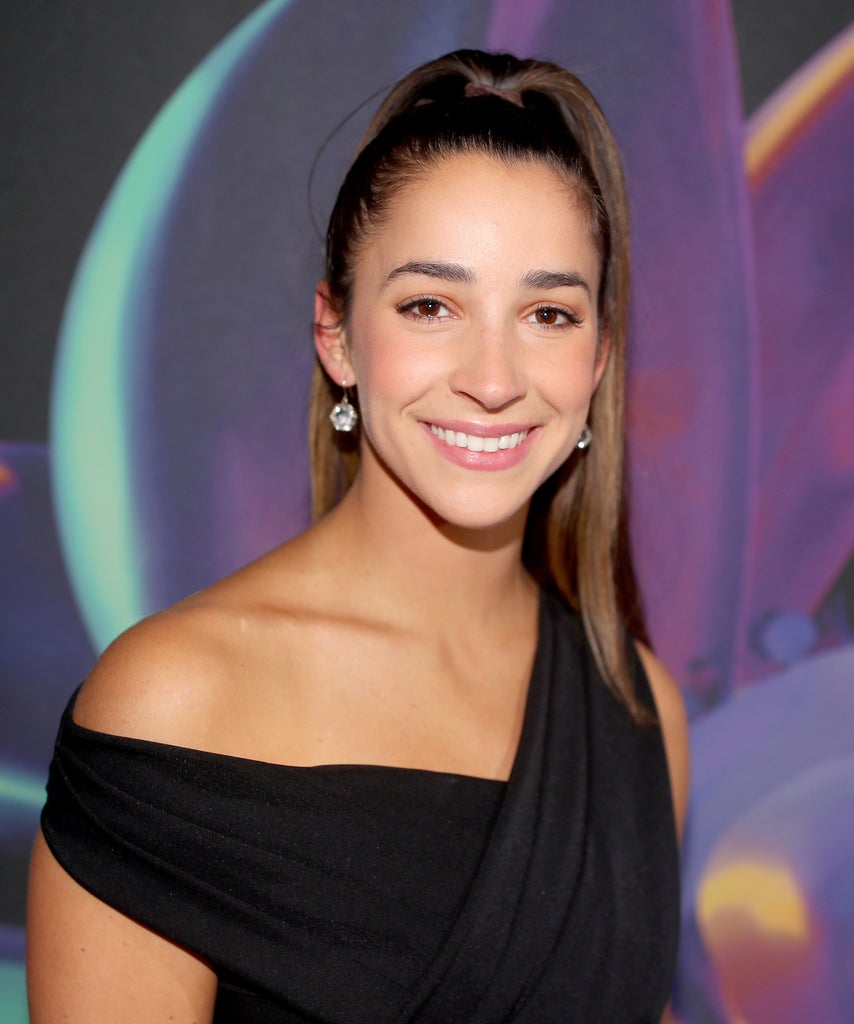
When gymnast Aly Raisman was eight years old, she’d sit in her living room and watch the women’s gymnastics team do their graceful twists and powerful handsprings on her TV. She was entranced. She began dreaming of what it would be like to be an Olympian herself. “I wanted to be just like them,” she tells Refinery29. “I daydreamed about it everywhere, all the time.”
Of course, soon she didn’t stop at dreaming. Raisman went on to be a two-time Olympian and six-time medalist. And now that she’s retired from the sport, Raisman is looking to find ways to help others pursue their dreams, on and off the mat.
After learning about the gender gap in science, technology, engineering, and mathematics (STEM) fields, Raisman wanted to help support girls who dream of working in one of these industries. Most recently, she partnered with Olay and Million Women Mentors in a push to recruit 1,000 high school-aged girls to attend a virtual event where they can hear from women leaders in the STEM field. “I believe the power of a dream can help you do so many incredible things,” Raisman says. “A lot of people are passionate about getting into STEM, but they might not feel that they have the support that they need, or they might not have the tools and the resources to get into it.”
Raisman hopes her partnership with Olay can help with the practical side of guiding women into STEM careers — and, as she made clear during her conversation with Refinery29, she can lend her expertise on the “how to chase your dreams” piece. Here, Raisman discusses when she realized she wanted to be an Olympian, and what she’s learned about the value of a strong support system.
Refinery29: What is your earliest memory of dreaming about being an Olympic gymnast?
Aly Raisman: “I started gymnastics when I was two, but I started dreaming about the Olympics when I was eight years old. I didn’t totally understand what the Olympics was, but I think that’s kind of the magic of being a little kid with a dream. It didn’t occur to me at that age that it wasn’t possible or that it was going to be really hard to achieve.”
What’s the best advice you’d give to a young person with a dream?
“Having a good support system around you — people who are there for you if you need anything — is really important. Because in life there’s going to be ups and downs. But I recognize not everyone has that. That’s why I think that people who have the capability to support someone, whether it’s another adult or a child, should, [because it’s] really valuable. It’s also key to find friends and surround yourself with people who have similar aspirations or similar values as you do, because that can help you build a community. Finally, don’t define yourself by whether or not your dreams come true. Have things outside of your dream that you’re achieving so that your self-worth isn’t wrapped up in whether or not you achieve that one dream.”
That makes sense and sounds like a really crucial thing to remember in terms of protecting your mental health and balancing self-care with drive. Speaking of which, what’s your current self-care routine?
“I try to do something for myself every single day. Every night, reading in the bathtub before I go to sleep is really helpful for me. One book I enjoyed was The Four Agreements [by Don Miguel Ruiz], and I also like reading about finance, which some might find boring but is interesting to me. I don’t watch TV before bed anymore, which has been great for getting a good night’s sleep, which impacts how I feel the next day.”
Does this routine help you look after your mental health?
“It makes me feel more balanced. I tried to do things that make me feel calm. If something is stressing me out, if I can avoid doing it, then I try to. But obviously, life happens and there are a lot of things out of our control.”
And I know you also meditate. How has that practice helped you with all that?
“I’ve found that body scans help me pay attention to where I feel tightness in my body. That’s been a big part of my journey.”
This interview has been condensed for length and clarity.
Like what you see? How about some more R29 goodness, right here?
Olympians Are Experiencing A Mental Health Crisis
Olympian Dalilah Muhammad Talks Goals & Setbacks
Olympian Adeline Gray Talks Sexism In Wrestling
from Refinery29 https://ift.tt/2VENVGQ
via IFTTT
